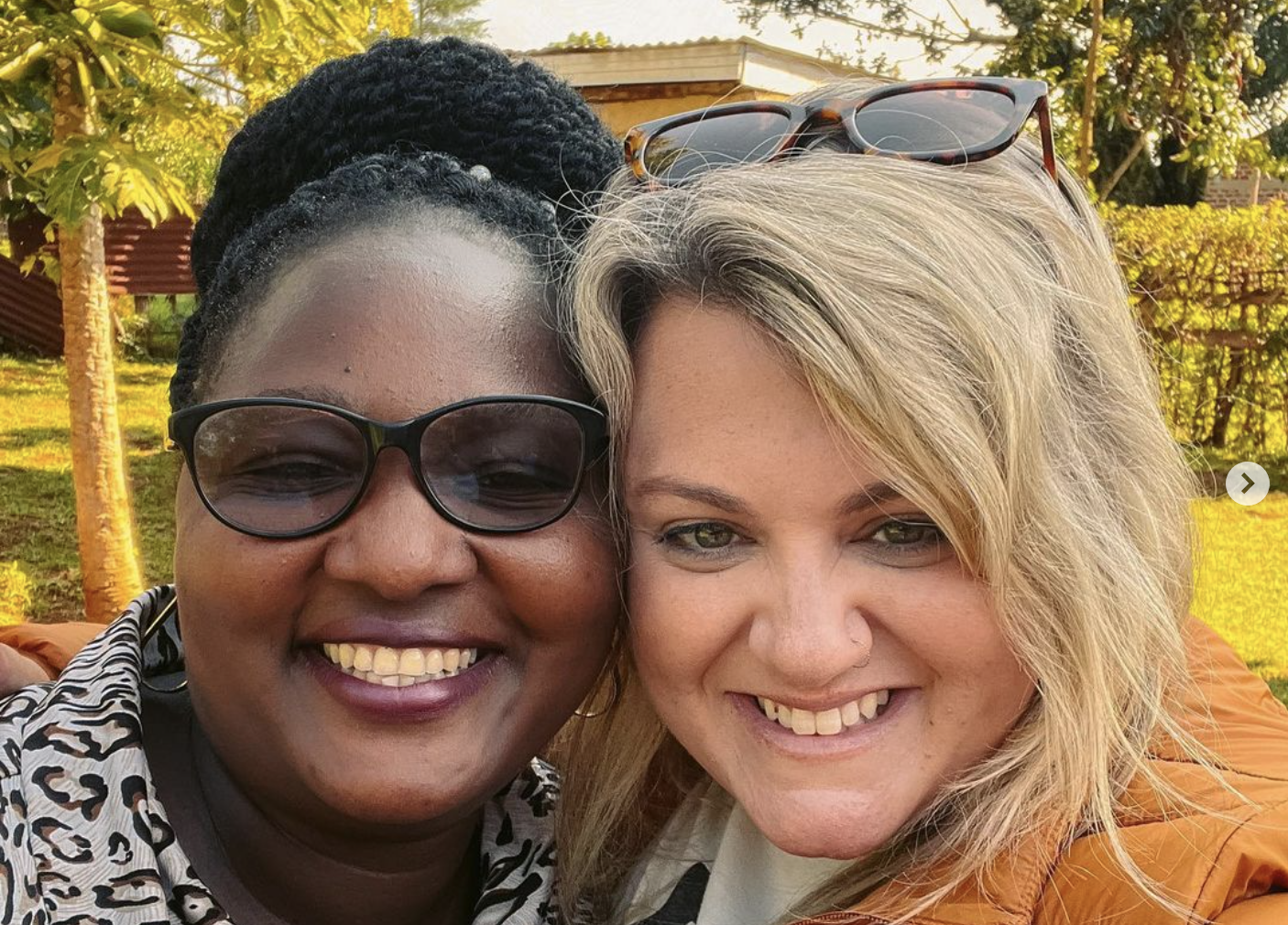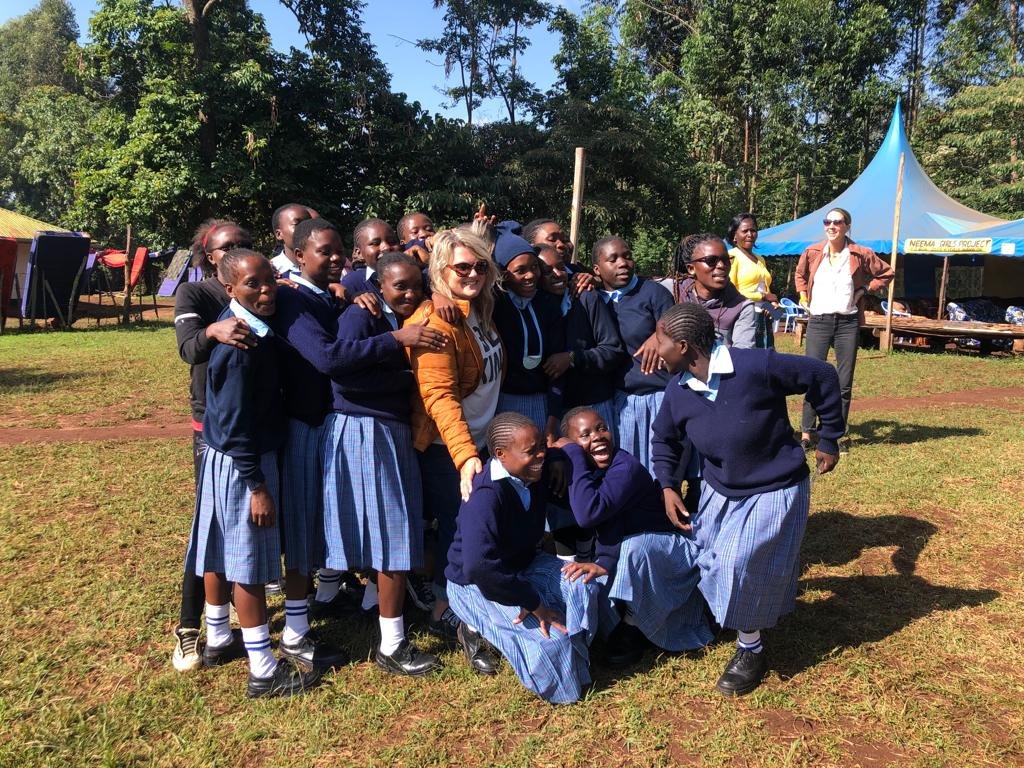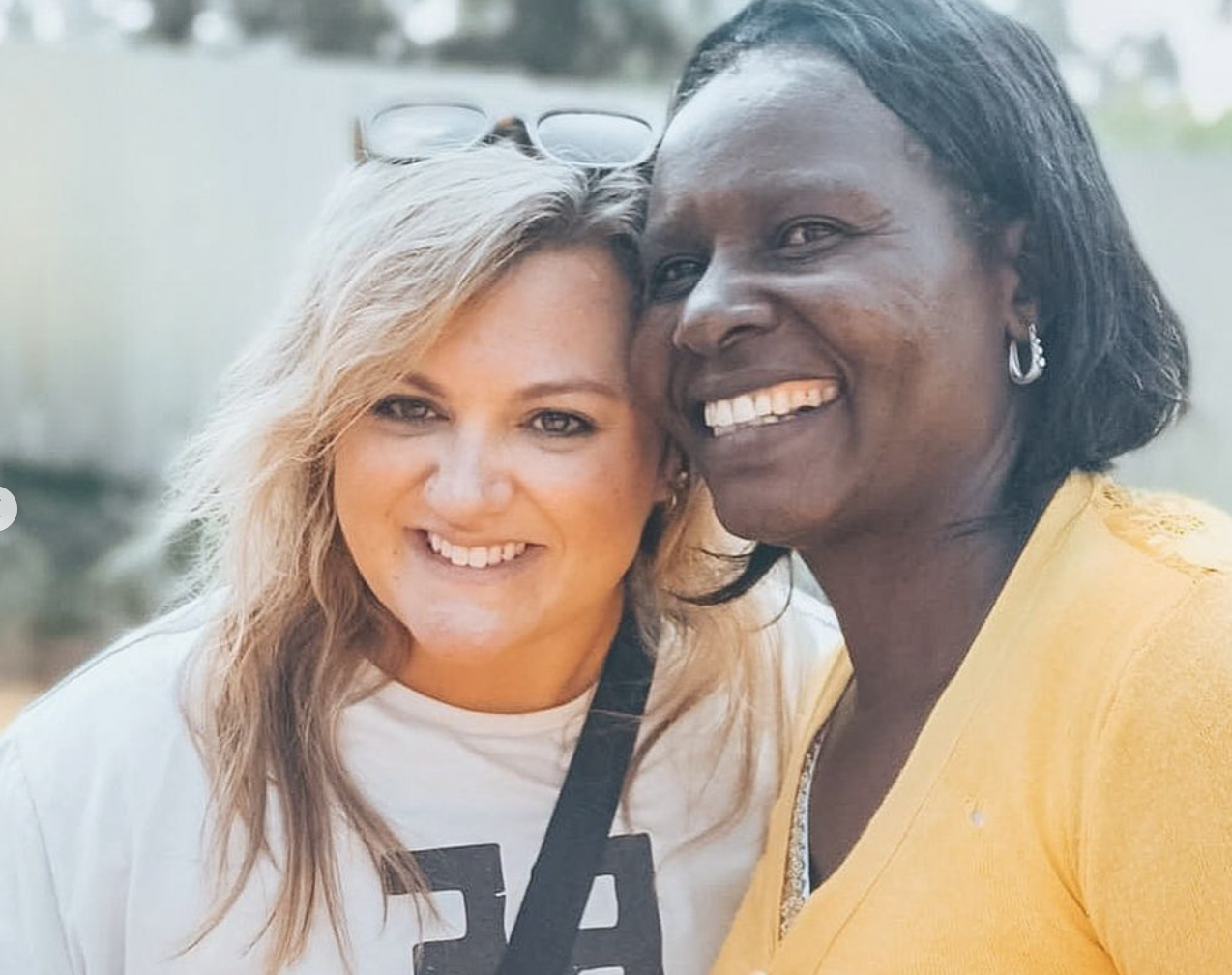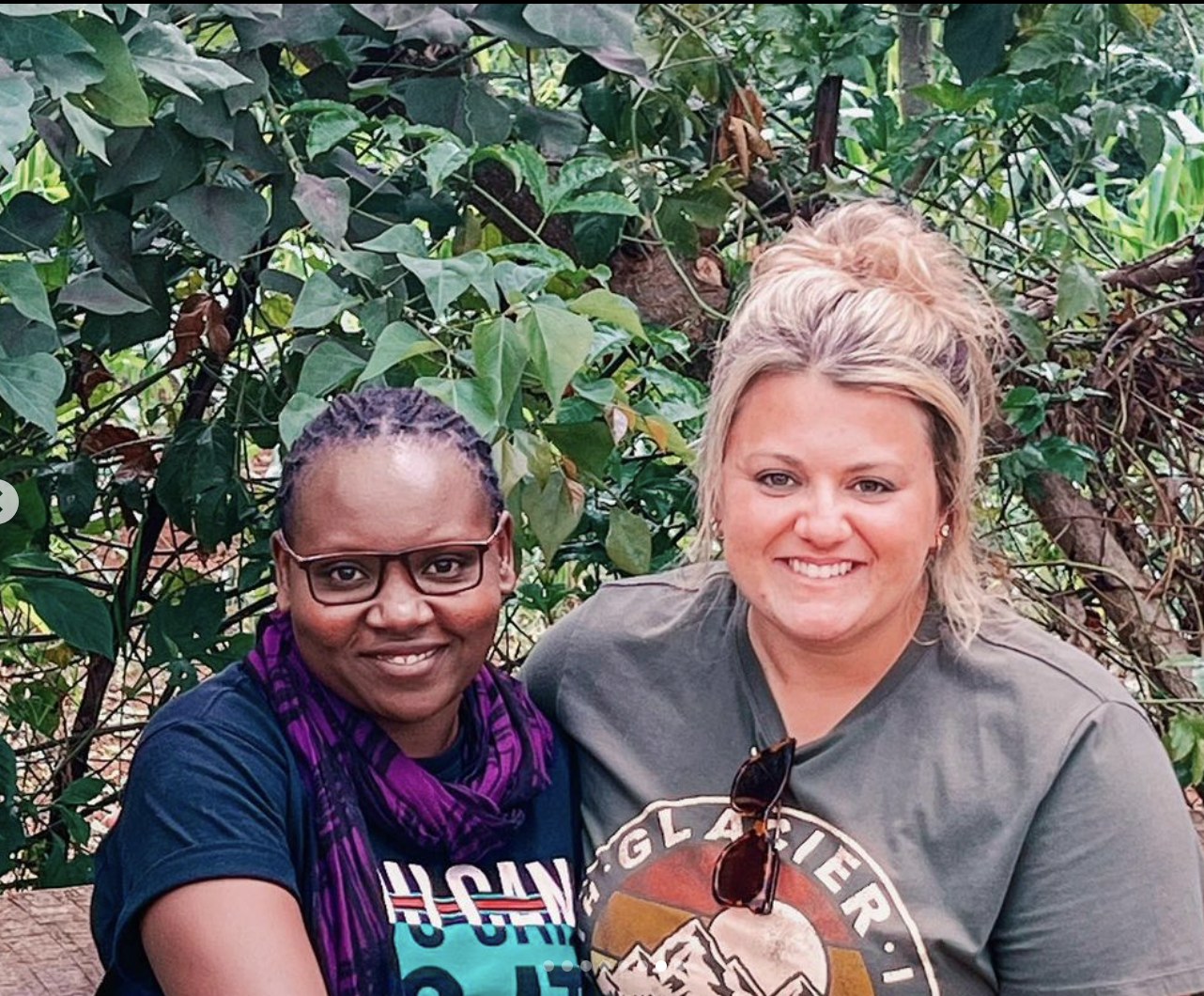Tension: A Reflection by Jennifer Peterkin
By Jennifer Peterkin, The Human Experience
Jen with our students’ children
Imagine a tightrope.
Strung high off the ground, the tightrope needs one essential element to be functional. Tension.
The pillars that bookend the tightrope stand opposite each other, their relationship paradoxical; for it’s only by existing in opposition that they work, together, to create an image of beauty, bravery, and strength.
Privilege removes us from the necessity of tension, thereby making the idea of it uncomfortable, even painful. But the reality is that tension is a part of life, and most importantly, a part of growth.
I just returned from spending a week in rural, Western Kenya with the beautiful staff and students of Neema. While my time there was brief, there was no shortage of beauty, love, or laughter. We were there to build relationships and to foster a sense of community.
Community is so ingrained in Kenyan culture that it almost feels scandalous as an outsider. The ease with which one is welcomed into the fold, the level of hospitality, and the genuine care that is shown for each other is foreign to us. It was humbling, if not disconcerting.
The mornings were spent in song and praise, the call and response of “Who has the final say?” “Jehovah has the final say”, led by the students, running on a loop inside my head even now as I sit more than 7,000 miles away.
The celebration of each other's achievements and triumphs brought out the brightest smiles and loudest cheers, even as the rainy season reared its ugly head, turning the red dirt roads to muddy trails.
An abundance of food was served every day at lunch, the U.S. and Kenyan staff huddled as one team, squeezing chairs into whatever open space could be found as we held heaping bowls of ugali, maize, beans, rice, chapati, cabbage, sukuma wiki, and fresh fruits, laughing and sharing together.
Stories were told and vulnerabilities were shared. Honor, respect, and empathy were traded equally; the currency of humanity stretching much farther than any shilling or dollar could.
A trip like this changes you, as it should. It not only forces you out of your own bubble of comfort and convenience but it pulls you into the path of proximity; a path that, in my experience, is where the most enduring and intimate friendships are forged.
Second year student Irene’s family with some of our trip members including Jen (third from right)
But proximity is a choice.
Because while proximity offers a door to wonder and abundance, it does not shy away from despair or scarcity.
Proximity holds tension. In a society that values the conquering spirit above all else we seldom address the existence of tension, preferring to use one pillar to cancel the other, instead of sitting with the entire picture. If one pillar falls, the tension goes slack. You lose the plot. All you’re left with is the incomplete version of events.
But what if we intentionally held that tension? What if we chose it as a form of worship, where lament and praise exist intertwined and not as a weapon used to eliminate the other?
I witnessed no hopelessness, no despair while I was in Kenya. Despondency did not permeate the air as we sat together in community. However, it seems disingenuous to say that there is no cause for lament. If that were true, there would be no need for the Neema school to exist in the first place.
The beauty seen and experienced does not erase the cry of lament in a country where women are still treated as second-class citizens, where abject poverty is a norm, where there is no governmental social security net, where access to everything from food to education is limited. Nor does the existence of these things diminish the bonds of community, the elevation of women through education and microfinance, the rhythm of a dance untaught but somehow known to all, the lushness of a green landscape, colorful flowers dotting every horizon and a birdsong in constant motion.
To pretend as though trauma and depletion are not a part of daily life is to rob a community of their hard fought story. The soil is rich where tension is held, not because beauty cancels out pain, but because we recognize that both matter. Both are valid. Both are a part of the human condition.
So hold the tension. Walk the tightrope. Because the point isn’t getting from one side to the other, it’s the exhilaration of what exists in between.






